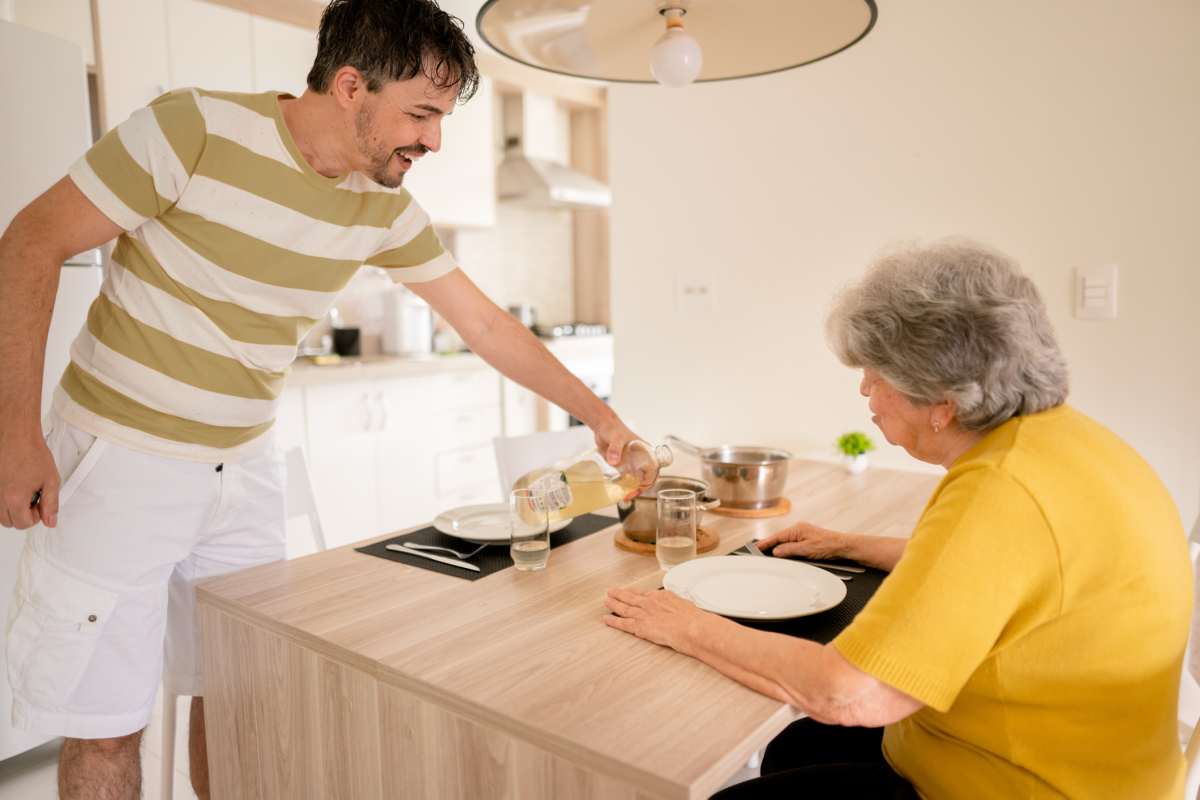Homeless man turns caregiver for aunt to ensure she doesn't turn homeless:'Can't let her live on the streets'
After losing his job and home, Mark Gaskin still found a way to protect his 81-year-old aunt from facing the same fate.

When Mark Gaskin lost his job after an injury, everything fell apart — his income, his home, his sense of stability. Once a traffic controller on the highways of Colorado, he went from steady paychecks and a two-bedroom home to sleeping in his car and showering at recreation centers. But when he discovered that his elderly aunt had just $12 left in her account and was facing eviction, he refused to let someone he loved go through the same thing. In an NPR StoryCorps interview with his sister, Debra Ayo, Gaskin shared how he became his elderly aunt’s main caregiver.

"In July of last year, her account had gotten hacked," he recalled. "I didn’t find out until her rent was due that she had $12 in her account. Without thinking twice, he went to her apartment office and told them, "There's no way my aunt's going to live on the streets." He handed over his debit card to cover her rent, even though he didn’t have much himself. That single decision changed both their lives. "I didn’t want my aunt, this 81-year-old woman, trying to live the way I was living my life — sleeping in my car, having to go to rec centers to shower, going to food banks to eat," he said. His sister responded, "In reality, as a homeless person, you helped Auntie not to be homeless."

Mark now lives out of his car, parked outside his aunt’s apartment, where he spends his days caring for her. "I’m glad I was able to show her that our relationship goes beyond finances. It’s just love," he told Ayo. He handles the cleaning, laundry, and errands, and takes her shopping when she just wants to get out of the house. "She’s always asking, well, does it bother me? I tell her — I say, no. I say, this is what I’m here for," he said.

When Debra asked where they learned to take care of their elders, Mark thought of their mother. "Growing up, I remember Mom — she doesn’t have a car. She has nine kids. Her parents lived five miles away. So in order for her to take care of her parents, she had to pack us up, walk the five miles to go visit them, take care of their everyday needs, and then we’d have to walk back," he said. That memory, he said, shaped his sense of duty, adding, "It doesn’t change my duty as a member of this family."
A recent study from Case Western Reserve University examined how people experiencing chronic homelessness often take on caregiving roles for family members despite limited means — the same sacrifices Mark makes every day. The study documented participants’ firsthand accounts, showing how caregiving responsibilities and personal losses profoundly shaped the course of their lives. Meagan Ray-Novak, who led the research, said, "We found that this story is really about love and caretaking. Many individuals in our study made sacrifices — losing homes, jobs and financial security — to take care of loved ones during moments of crisis."
Debra’s voice broke a little when she told him, "I can truly say that I am so pleased with the way you have taken care of Auntie. Should anything happen today and she passes, when you lay your head down at night, you’ve done all that you can do. You did your best with what was given to you." Mark reflected on how much his life had changed, and yet how much peace he had found in the middle of it. "Before, you know, I was doing so good. I had a great job, had a two-bedroom house, my own private yard. Now all that’s gone. But I’m OK with that because the joy that I get from knowing that Auntie’s taken care of — it’s worth it for me," he said.
More on Scoop Upworthy
Homeless man spends his nights helping others stay warm after 'a guardian angel' saved his life

 Share on Facebook
Share on Facebook





